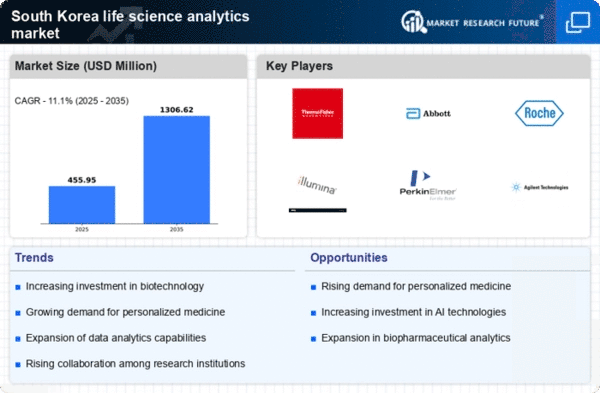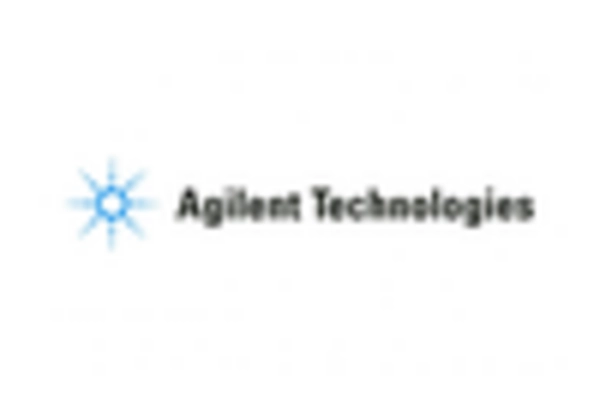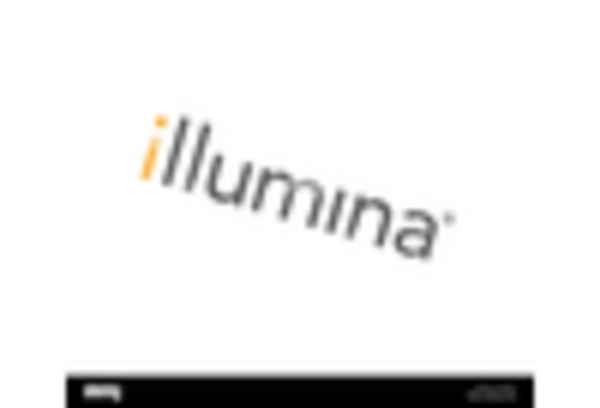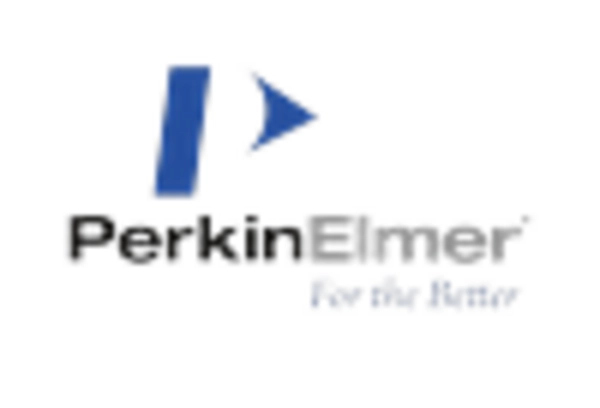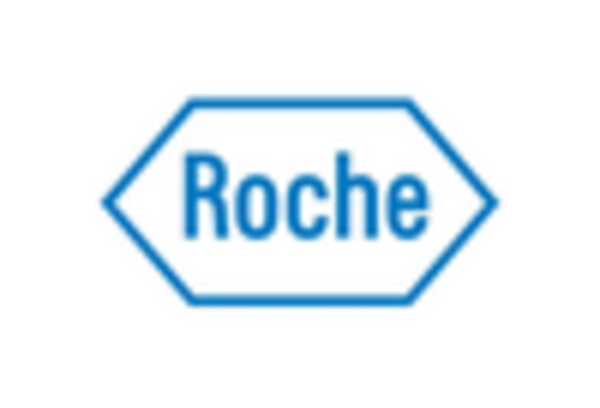Growing Focus on Real-World Evidence
The emphasis on real-world evidence (RWE) is reshaping the life science-analytics market in South Korea. RWE is increasingly recognized as a valuable resource for understanding treatment effectiveness and patient outcomes outside of controlled clinical trials. This shift is prompting organizations to invest in analytics capabilities that can harness real-world data from various sources, including electronic health records and patient registries. By 2025, the RWE segment is projected to grow by 18%, reflecting its critical role in informing healthcare decisions. The life science-analytics market is thus adapting to this trend, enabling stakeholders to make more informed choices based on comprehensive data analysis.
Integration of Artificial Intelligence
The integration of artificial intelligence (AI) technologies is transforming the life science-analytics market in South Korea. AI applications, such as machine learning and natural language processing, are being utilized to analyze complex biological data and streamline research processes. This technological evolution allows for enhanced predictive analytics, which can lead to more accurate drug discovery and development timelines. As of 2025, it is estimated that AI-driven solutions could account for over 30% of the analytics market, indicating a significant shift towards automation and efficiency. The life science-analytics market is thus poised to benefit from these advancements, fostering a more innovative research environment.
Rising Demand for Data-Driven Insights
The life science-analytics market in South Korea experiences a notable surge in demand for data-driven insights. This trend is largely attributed to the increasing complexity of healthcare data and the necessity for actionable intelligence in decision-making processes. Organizations are increasingly leveraging analytics to enhance operational efficiency and improve patient outcomes. In 2025, the market is projected to grow at a CAGR of approximately 12%, reflecting the growing reliance on data analytics in life sciences. The integration of advanced analytics tools enables stakeholders to derive meaningful insights from vast datasets, thereby driving innovation and improving research capabilities within the life science-analytics market.
Increased Collaboration Among Stakeholders
Collaboration among various stakeholders, including academic institutions, healthcare providers, and technology firms, is becoming increasingly prevalent in the life science-analytics market. This trend is driven by the recognition that interdisciplinary approaches can yield more comprehensive insights and foster innovation. Partnerships are being formed to share data, resources, and expertise, which enhances the overall research landscape. In South Korea, collaborative initiatives are expected to increase by 15% in the coming years, reflecting a growing understanding of the value of shared knowledge. Such collaborations are likely to accelerate advancements in the life science-analytics market, leading to improved healthcare solutions.
Regulatory Compliance and Quality Assurance
Regulatory compliance and quality assurance are critical drivers in the life science-analytics market, particularly in South Korea, where stringent regulations govern healthcare practices. Organizations are increasingly investing in analytics solutions that ensure compliance with local and international standards. This focus on quality not only mitigates risks but also enhances the credibility of research findings. As regulatory frameworks evolve, the demand for analytics tools that facilitate compliance is expected to rise. By 2025, it is anticipated that compliance-related analytics will constitute approximately 20% of the market, underscoring the importance of maintaining high standards in the life science-analytics market.


